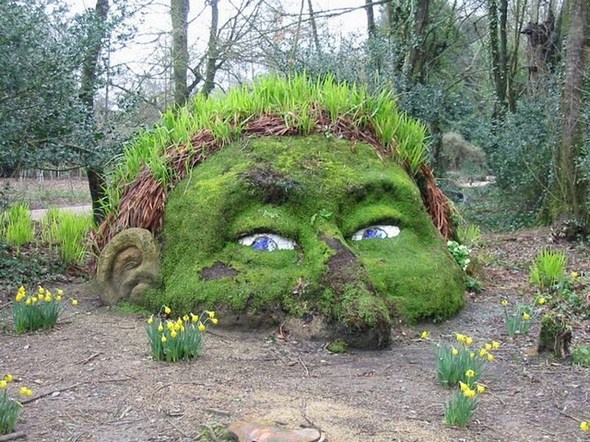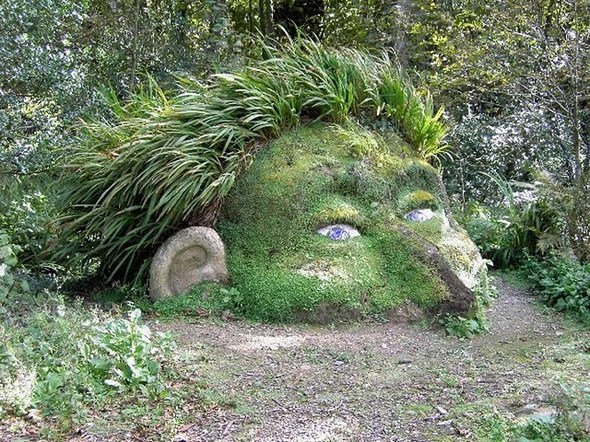The Lost Gardens of Heligane, near the town Mevagizi in Cornwall, are among the most popular botanical gardens in the UK. Garden is decorated in the typical style of the nineteenth century under the name "gardenesk", divided into zones with different shapes and different design layout.
The gardens were created by members of the Cornish Tremayne family for the period from the mid 18 th century to the early 20 th century and they still are part of the family property Heligan. The gardens were abandoned after the First World War, and restored only in 1990. The recovery process is featured in several popular television programs and books.
Today, the gardens boast a wonderful collection of ancient rhododendrons and camellias enormous size, a series of lakes that are fed by a 100-year plunger pump, fertile flower and vegetable gardens, Italian garden and a stunning wild area with primitive tree ferns called "Jungle". In the garden there is only one hole remaining in Europe for storing pineapples, which is heated by peregnivaniyu compost and two figures made of stone and plants under the name "Girl" and "Head of a giant."
The gardens were created by members of the Cornish Tremayne family for the period from the mid 18 th century to the early 20 th century and they still are part of the family property Heligan. The gardens were abandoned after the First World War, and restored only in 1990. The recovery process is featured in several popular television programs and books.
Today, the gardens boast a wonderful collection of ancient rhododendrons and camellias enormous size, a series of lakes that are fed by a 100-year plunger pump, fertile flower and vegetable gardens, Italian garden and a stunning wild area with primitive tree ferns called "Jungle". In the garden there is only one hole remaining in Europe for storing pineapples, which is heated by peregnivaniyu compost and two figures made of stone and plants under the name "Girl" and "Head of a giant."


























































